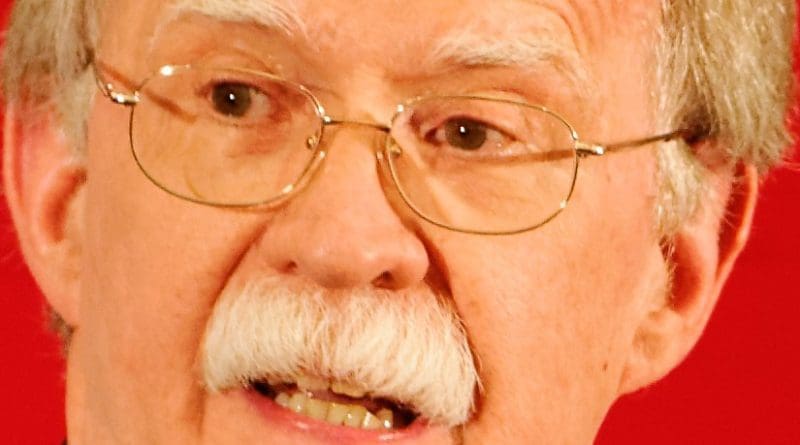The Bolton Effect: Two scenarios – OpEd
The appointment of Iran ultra-hawk John Bolton as the new national security adviser in the White House has sparked new suspicions that the Trump administration is edging closer to scrapping the Iran nuclear deal, essentially by removing top officials who favor it.
Even more than the Tillerson-Pompeo replacement at the US Department of State, Bolton’s appointment has been directly linked to an imminent demise of the nuclear deal, known as the Joint Comprehensive Plan of Action (JCPOA), which is due for Trump’s decision in mid-May, 2018.
But, although the radical changes in the Administration cited above may spell a more hawkish US foreign policy toward Iran in the near future, it is still far from clear that the fate of JCPOA is already sealed and it is only a matter of time before US formally withdraws from it. The US military leaders including the Defense Secretary James Mattis are on record in favor of the JCPOA and, therefore, within the administration quarrel over the agreement is bound to continue. The policy clash over Iran may lead to more firings and resignations, but at this stage the Trump administration is not poised to go after Mattis over the JCPOA.
So with Mattis and a whole number of other US military commanders voicing in favor of the JCPOA, it is difficult to see how the newcomer Bolton can surmount the necessary support in such a short time between now and mid-May to prevail over his opponents? Mattis may engage as a shadow secretary of state, given his unwillingness to commit the US forces to yet another war of choice that may become more likely if US exits the JCPOA and thus add to the volatility of Persian Gulf powder keg.
Not only that, with Bolton assuming such a high-prolife position, logically speaking it is even more difficult for Trump to justify his decision to scuttle the JCPOA, simply because this would be partially attributed to Bolton and his fringe ultra-hawk brand of politics that is out of favor with the mainstream Washington establishment. An unwise concession to the hawkish warmongers, indeed this is how this will be widely interpreted in the US and abroad, weakening Trump’s hands vis-a-vis the critics of his decision, including many in Europe, as well as Iran.
One reason why Trump requires a fair amount of legitimacy for his final blow at the JCPOA is that this would be tantamount to the end of US sanctions waivers and the resumption of US’s coercive sanctions against Iran, which cannot possibly succeed without replicating the international coalition that backed it before the JCPOA. Yet, as a result of the significant changes in the international environment favoring Iran, resulting in the strengthening of trade and diplomatic ties between Iran and Europe and Asia and elsewhere around the world, it is virtually impossible to resurrect the global consensus on Iran’s nuclear program that fueled the international sanctions. A US ‘go it alone’ is therefore more likely, reflecting an unwanted transatlantic fissure with US’s European and Asian partners, so long as Iran plays its cards right and does not fall into any American ‘trap’.
Concerning the latter, while a US exit from the JCPOA weakens the accord considerably, yet it is not a mortal blow, requiring proportionate response from Iran, so that the net benefits of the post-JCPOA era continue unimpeded and Iran thus deprives the US of the ability to muster global support, e.g., for oil sanction. In this scenario, the high visibility of Bolton at the forefront of Trump’s Iran policy has a contradictory effect, likely to weaken the American resolve to exit the JCPOA in the absence of any viable justification in light of the IAEA reports confirming Iran’s full compliance with its JCPOA obligations. Chances are, then, that at least for the near term, May decision of Trump will not sound the death knell but rather another temporary respite for the deal, much like the three earlier decisions that have resulted in keeping the nuclear accord afloat.
This article was published at IRNA.

